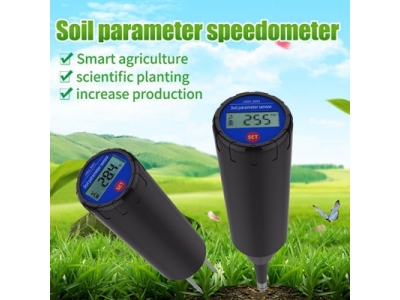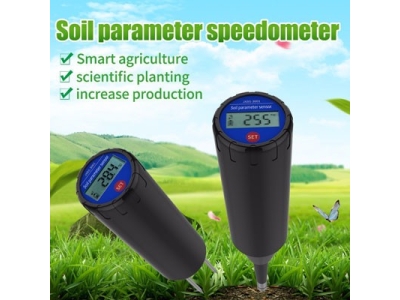
Unveiling the Power of Soil Testing Instruments in Farming
Soil testing instruments have revolutionized modern farming practices by providing farmers with valuable insights into soil health, nutrient levels,

Soil testing instruments have revolutionized modern farming practices by providing farmers with valuable insights into soil health, nutrient levels,
Soil testing instruments have revolutionized modern farming practices by providing farmers with valuable insights into soil health, nutrient levels, and overall fertility. In this article, we will delve into the significance of soil testing instruments in agriculture, explore their impact on crop productivity and environmental sustainability, and discuss the diverse range of instruments available to today's farmers.

Understanding the Importance of Soil Testing:
The quality of soil directly influences crop growth, yield, and quality. By conducting comprehensive soil testing, farmers can gain critical information about soil composition, pH levels, nutrient content, and potential deficiencies. This knowledge empowers farmers to make informed decisions regarding fertilizer application, soil amendments, and crop selection, ultimately leading to improved farm productivity and resource management.
Impact of Soil Testing Instruments on Farming:
Precision Agriculture: Soil testing instruments enable precision agriculture by providing precise data on soil characteristics at a granular level. This allows farmers to tailor their inputs, such as fertilizers and lime, to meet the specific needs of different areas within their fields, maximizing resource efficiency and minimizing environmental impact.
Improved Crop Yield and Quality: By optimizing soil health through targeted interventions based on soil test results, farmers can enhance crop yield, improve crop quality, and ensure consistent harvests year after year.
Environmental Sustainability: Soil testing instruments contribute to environmental sustainability by promoting responsible use of fertilizers and reducing the risk of nutrient runoff and soil erosion, thereby protecting water quality and preserving natural ecosystems.
Types of Soil Testing Instruments:
Soil pH Meters: These instruments measure the acidity or alkalinity of the soil, providing crucial information for determining appropriate lime application and understanding nutrient availability.
Nutrient Test Kits: These kits assess soil nutrient levels, including nitrogen, phosphorus, potassium, and micronutrients, guiding farmers in making precise fertilizer applications and avoiding overuse of nutrients.
Soil Moisture Sensors: These sensors measure the moisture content in the soil, helping farmers optimize irrigation schedules and prevent both waterlogging and drought stress in crops.
Electrical Conductivity Meters: These instruments gauge the soil's ability to conduct electricity, offering insights into salinity levels and soil composition, which is valuable for managing soil salinity and selecting appropriate crops.
Soil Respiration Analyzers: These instruments assess the microbial activity and overall soil health, providing an indication of soil fertility and biological activity.
Utilizing Soil Testing Data:
Upon obtaining soil testing data from these instruments, farmers can develop customized nutrient management plans, implement targeted soil amendments, and adopt sustainable farming practices. Moreover, the data generated by soil testing instruments can be integrated with modern farm management software and precision agriculture technologies, allowing for data-driven decision-making and optimized resource allocation.
Empowering Farmers for Success:
Soil testing instruments empower farmers with the knowledge and tools needed to make evidence-based decisions, improve agricultural productivity, and promote environmental stewardship. By harnessing the power of soil testing, farmers can unlock the full potential of their land while minimizing their ecological footprint.
Future Outlook and Innovations:
As agricultural technology continues to evolve, advancements in soil testing instruments are expected to further refine accuracy, portability, and connectivity. Emerging technologies such as remote sensing, satellite imagery, and artificial intelligence are poised to integrate with soil testing instruments, offering farmers unprecedented insights into soil health and farm management.
Conclusion:
In conclusion, soil testing instruments represent a cornerstone of modern farming practices, providing farmers with essential information to optimize soil fertility, enhance crop productivity, and preserve environmental integrity. The integration of soil testing data with precision agriculture technologies offers immense potential for sustainable and efficient farming. As we look ahead, continued innovation in soil testing instruments will undoubtedly play a pivotal role in shaping the future of agriculture, ensuring food security, and promoting ecological sustainability.